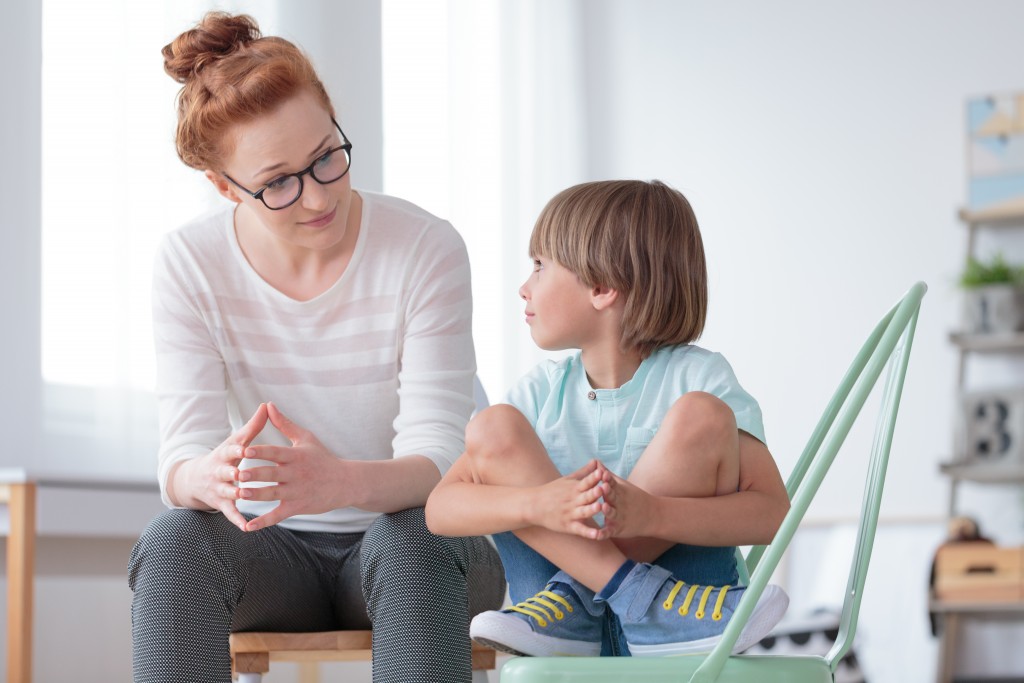Stable mental health early in life is crucial. It leads to a more holistic and content life as an adult. But there’s a common misconception that children are less susceptible to mental health issues. Some believed that children are just prone to tantrums. All they would need are toys, sweets, and playtime to be happy.
That’s simply not true. Studies by the World Health Organization (WHO) show that poor mental health emerges in an estimated 10-20% of children and young adults worldwide. Many factors affect children and young adults’ mental health such as their home and school environments. Today, there is one significant factor that caused a cascading effect on children’s mental health: the COVID-19 pandemic.
COVID-19 and Children’s Mental Health
The implementation of lockdown restrictions and social distancing disrupted the routine of children. They had to stay at home, away from their friends and teachers. Many of their after-school activities stopped. A son who is the star player of the little league couldn’t play. A daughter who’s supposed to compete in a national dance competition couldn’t rehearse. No more soccer games, band practice, debate competitions, and Model U.N.
These may be small things when compared to the greater impact of the pandemic. But these things mean the world to them.
The struggle against the virus is even harder for low-income families. Not only do children have to stay at home, they often have to be alone. Their parents have to continue working despite the pandemic. Frontline workers such as doctors and nurses, store clerks, factory workers, and cleaning crew worked. But their children spent their empty and lonely days worrying about their parents’ safety. What’s even worse is that some children dealt with the passing of family members due to COVID-19. Funeral services and arrangements for their loved ones were done in unconventional ways to follow social distancing protocols.
The economic consequences of the pandemic dire on low-income households. Parents and guardians lost jobs. As a result, at least 20 million children live in households where someone recently lost a job.
It’s a struggle for many, especially when some solutions require shelling out a lot of money. There are other ways to access mental healthcare for children. But here are some solutions that anyone can do despite financial stability or instability.
Activities Together
One of the biggest hurdles for low-income families right now is spending time together. Many parents are combating the economic consequences of the pandemic by taking more shifts or multiple jobs. But it’s important to still find a way to be present at home with your children.
You can try to have one meal together. It could be breakfast or dinner. It would be the perfect opportunity to sit down and just talk with your children. You can ask them about their day. They might open up to you when they are feeling lonely. If you can’t make it during mealtimes, then you can resort to reading them stories to bed. One story each night. That should be counted as bonding time.
Routine at Home
 With school closures or transition to remote learning, routines had been disrupted. So it’s up to you to set up a new routine for them. It will help them get a sense of stability amid all that is happening right now.
With school closures or transition to remote learning, routines had been disrupted. So it’s up to you to set up a new routine for them. It will help them get a sense of stability amid all that is happening right now.
You can set up proper wake-up times and bedtimes for them. Mornings would be for schoolwork. Early afternoons are for naps. Late afternoons are for play. Just because they’re just staying at home, it doesn’t mean that they have nothing to do all day.
Age-Appropriate Talks
It’s important to help children understand the things happening around them. They have a lot of questions and you have to be there to answer them. Help them understand why the schools are closed, why they couldn’t play with their friends at the playground, and why they couldn’t do their other favorite activities.
It’s better to make sure that they understand now, rather than letting them draw conclusions on their own. Confusion could cause them anxiety or even depression.
When children are down, it is the role of their parents and guardians to help them back up. It’s their job to be aware of the children’s struggles. It’s also their job to be present and to bond with them. Setting aside time with them every day, even just a few minutes, may seem so small. But it would mean the world to them.
It’s also the adults’ duty to look for solutions. They must find ways to help their children recover and improve their mental health. And it’s up to them to find ways to prevent mental breakdowns from happening again or at all.

